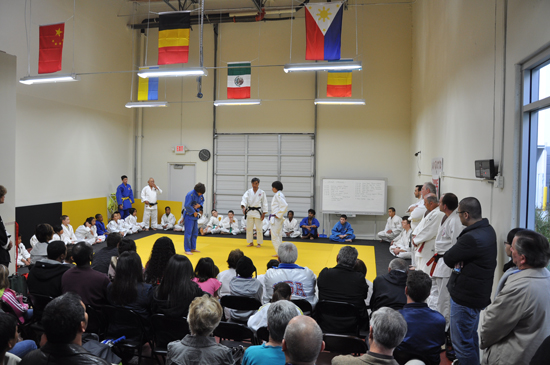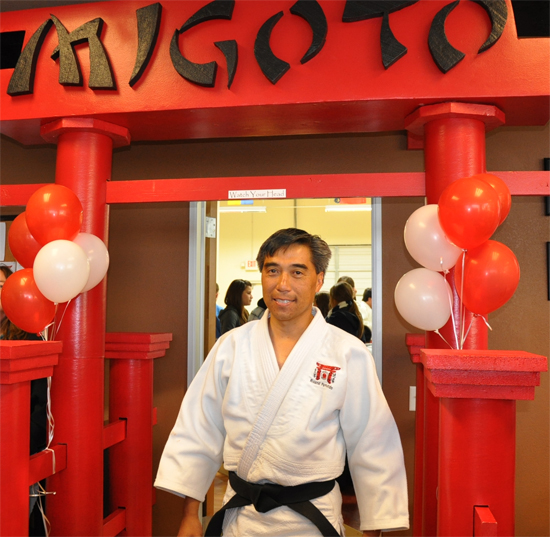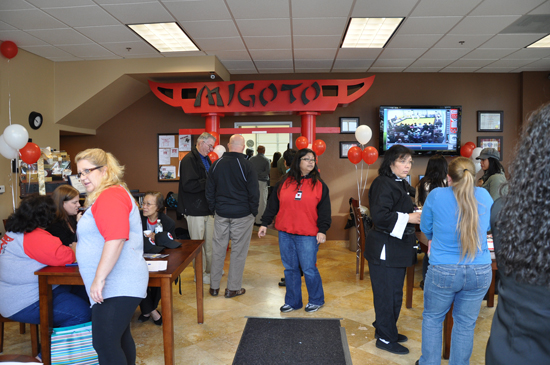Last week, I had the pleasure of attending the Grand Opening of Migoto Judo Club’s new facilities. Migoto’s home is a commercial building in a new business park in Chula Vista, California, which is located in South San Diego County. Its previous home was the home of its coach, Roland Fernando. Migoto’s story deserves to be told and emulated.
Roland studied Judo as a child, then left the sport only to return to it many years later when his kids were old enough to learn Judo. Sound familiar? He joined the local recreation center Judo club. As his kids grew and became more proficient at the sport, Roland, who was now one of the assistant coaches, informed the sensei that he’d be willing to run a program extension in his house to give the kids additional training sessions.
With permission granted, Roland installed a Judo mat in a room addition in his house, and started the extra practices with a few of the club’s competitors, while still attending classes at the recreation center. Sounds like Garage Judo to me.
As the satellite program grew, politics intervened, and for some reason sensei pulled the plug on the idea, and kicked the group out of the main club. Roland’s satellite program was now its own entity. A large group of players and coaches broke off from the main program, and stayed with Roland. While Roland was now the head sensei of his own club, he was the junior in rank among the coaches. Clearly, that wasn’t going to stop him from being the club’s visionary.
Within a year, it was obvious that the room addition was not going to be adequate enough for the club. The ideal solution was for Roland to find a commercial building, and move both the club and his personal business into it. And that’s what happened. He even bought the building!
Migoto’s story, without the political fallout, epitomizes what I believe is the future of the growth of Judo in America. Established coaches need to empower their assistants to start satellite or independent programs. Starting in a garage or room addition makes economical sense. It also allows you to control class schedules, costs, and quality of equipment, unlike starting off in a YMCA or recreation center. Once an adequate enough membership is developed, renting or buying commercial space becomes feasible. Better visibility and larger facilities usually lead to more players doing Judo. Who doesn’t want that?
Since I not only talk the talk, but walk the walk, one of my assistants coaches just picked up some spare mats I had in my garage. After months of encouraging him to start a program in his garage, he’s doing just that. Two weeks ago, we built his spring-loaded platform. Today, the mats are going down. In a few days, he’ll be participating in my coaching seminar, which is devoted to teaching beginners. And within a few more weeks, I’m hoping he’ll be ready to start classes.
That’s how you grow Judo.
A few final words on Migoto. It’s the only club in San Diego County that has supported my events. Since the dojo itself is wall-to-wall, spectators watch the class on a large screen TV in the main lobby! It’s definitely a nice way of keeping parents involved without parents being nuisances.




How quaint! Everybody knows judo is not about the persuit of technical excellence. The corect procedure would have been, to have Migoto expelled from the USJA. You might also shun all, who again use his name! If my students knew that I drove an hour and a half to study under Del Diez. Only because he is the best coach in Florida. Or that I drive :45 minnets to learn from Gogi, on his back porch. Well, it would be devastating to my reputation! Nobody could ever respect me as a judo man again.
Seriously though, good luck Migoto!
David Schrock